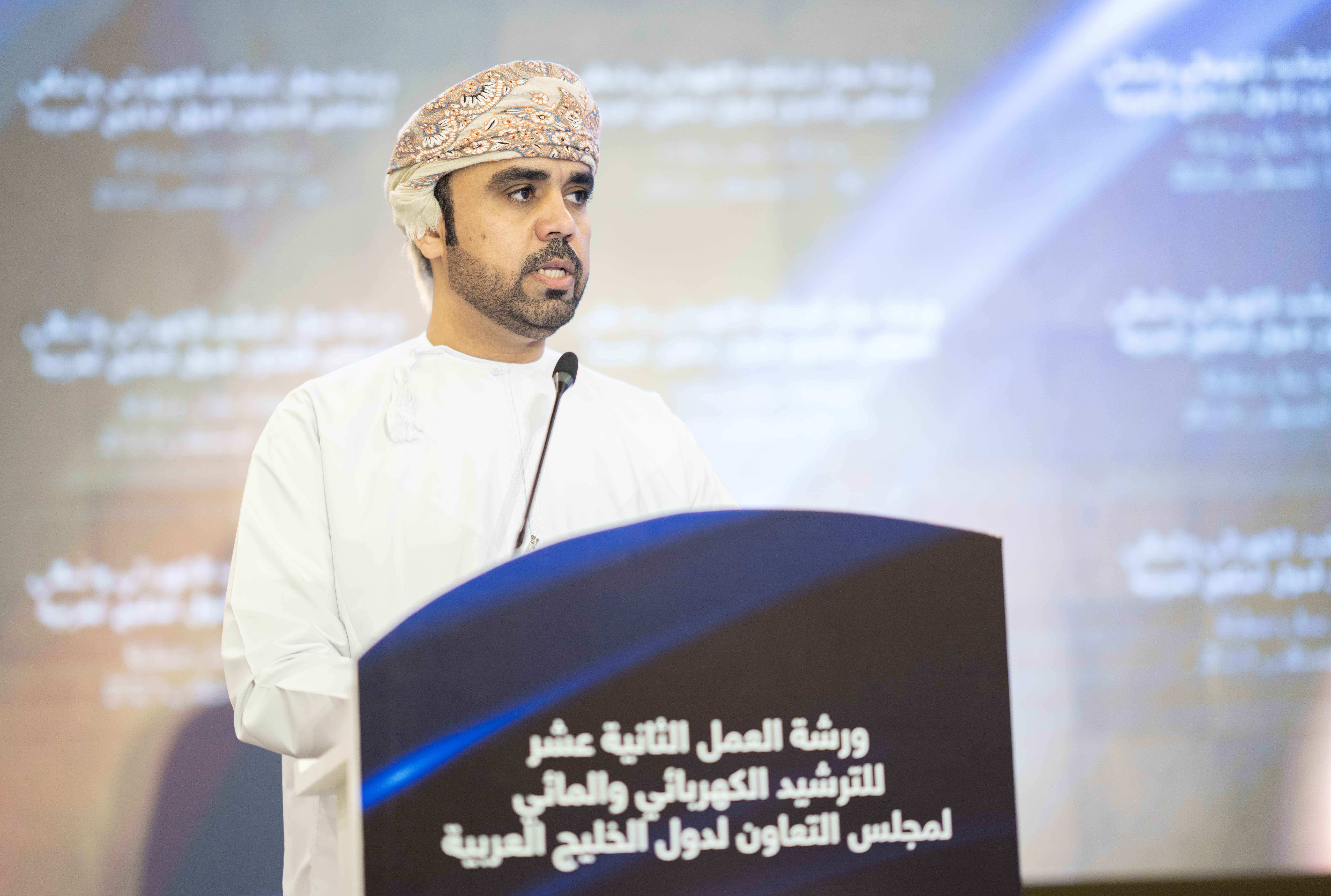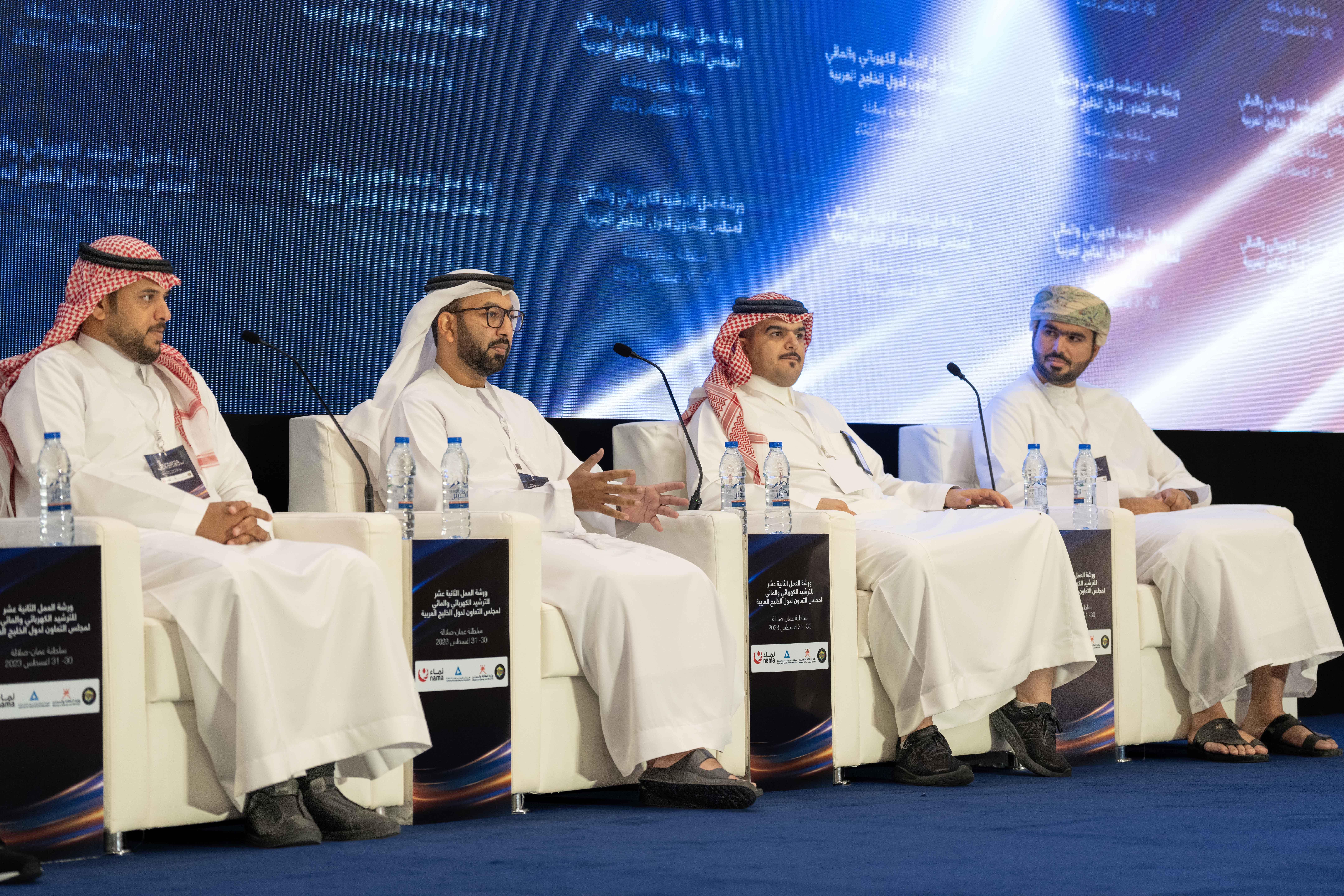Represented by the Committee on Electricity and Water Rationalization and Subscriber Services, the General Secretariat of the Arab Gulf Cooperation Council (GCC) has organized the Twelfth Workshop on Electricity and Water Rationalization. Scheduled to be held within the Dhofar Governorate from the 30th to the 31st of August 2023, this workshop is organized under the coordination and supervision of the Ministry of Energy and Minerals, the Public Services Authority, and “Nama Group” represented by Nama Dhofar Services.
The workshop tackles four topics, encompassing 21 working papers. The First Topic examines contemporary projects and technologies related to the rationalization and improvement of energy and water efficiency. The Second Topic delves into the technical specifications and standards related to the sphere of rationalization, while the Third Topic undertakes a comprehensive review of the challenges encountered therein, along with successful experiences in the field of rationalizing and improving the efficiency of utilizing energy and water. The Fourth Topic is dedicated to the discourse on awareness and societal obligation in the energy and water sector.
Dr. Mohammed Falah Al-Rashidi, the Director of the GCC Energy Department, inaugurated his discourse by stating “we meet together to discuss upon the best methodologies within the field of electrical and water rationalization and to share insights and experiences within this pivotal domain. Furthermore, we work collectively towards the realization of shared objectives in safeguarding and perpetuating our reservoirs of electrical and water resources for forthcoming generations. Given the escalating challenges confronting our societies, coupled with the escalating trajectory of population expansion and the expanse of industrial advancement, the concomitant environmental and economic expenses necessitate our earnest pursuit of more efficacious ways for the utilization and administration of these resources.
The GCC countries have demonstrated prowess in following the path of sustainable development, orchestrating advanced strategies to transition towards a more diversified and efficient economy. The endeavor of rationalizing electricity and water transcends mere ecological obligation; rather, it epitomizes a smart economic strategy. Rationalization, in its essence, entails the curtailment of overhead expenditures borne by both citizens and enterprises, concomitantly fostering the sustainable development and fortifying our capacity to control the effects of global economic fluctuations.”

Eng. Hilal bin Mohammed Al Ghaithi, the Director General of Energy at the Public Services Regulatory Authority and the Chairman of the Electricity and Water Rationalization and Subscriber Services Committee for the ongoing session, expounded during his speech at the workshop's commencement: "The world is witnessing a sustainable transition towards the effective and wise use of natural resources. The discourse related to raising the efficiency and rationalization of electricity and water consumption and the sustainability of its resources have become among the priorities and concerns of Their Majesties and Highnesses, the leaders of the GCC States, may God protect them, and the governments of the Member States due to its importance in the sustainability and enhancement of energy and water security in the GCC States.
This interest resulted in the adoption of national goals within the future visions and strategies of Member States to raise energy and water efficiency, in response to the requirements of sustainable economic development in our countries and in line with global trends towards achieving sustainable development goals and reducing emissions in order to reach zero neutrality. "

The workshop brought together experts and specialists from various GCC entities and institutions. The workshop provides a platform for these participants to exchange experiences and knowledge in the field of rationalizing electricity and water consumption. This initiative promotes cooperation and interconnectivity among member countries. It engenders a comprehensive overview of current practices and experiences geared towards improving the efficiency of the use of natural resources.

Workshop participants address challenges and opportunities related to the rationalization of electricity and water consumption, and review innovative strategies and technologies that may contribute to improving the environmental efficiency of power generation and water use processes. Future ambitions and development plans for the application of these technologies and innovations are discussed, with the aim of promoting sustainability and reducing the impacts of resource consumption on the environment.
Throughout this workshop, an exchange of ideas, experiences, and accomplishments took center stage, invigorating the ethos of collaboration and perpetual knowledge acquisition among the GCC nations. This concerted effort augments the bedrock of sustainable foundations within the realm of the electricity and water sector across the region.